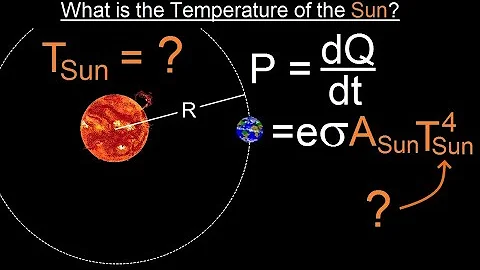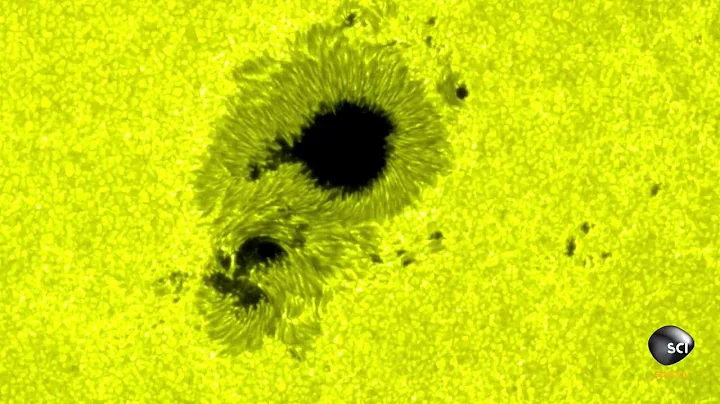
[Definition]: It is Minor Heat when the sun reaches 105° of ecliptic longitude.
[Date]: Between July 6th and July 8th of each year.
[Festival Time]: July 7, 2022 at 10:38
Xiaoshu climate
Xiaoshu is also a solar term as the name suggests. Xiaoshu means "little heat". For China, which is located in the mid-latitudes of the northern hemisphere, the Xiaoshu solar term is usually the beginning of midsummer. Among the people, there is a saying that "steaming at the top and boiling at the bottom" is known as "slight heat and big heat". In short, will give you a sample of "Small Potato" first. Once you are familiar with the taste, it's time to serve the "Big Potato "!

During the Slight Summer Period, the average temperature in southern my country can reach 25~26℃, and the average daily temperature in some areas exceeds 30℃, The maximum daytime temperature frequently exceeds 35℃. At the same time, the plum rain season in the middle and lower reaches of the Yangtze River has ended one after another and entered the "sauna day"; high temperatures gather energy in the atmosphere, and thunder and lightning, strong winds, heavy rains, hail and other strong convective weather occur more frequently.

In short, the weather is more complex and changeable, and the differences between the north and the south are obvious. These are the unique situations we face before and after the Xiaoshu solar term. Therefore, farming is also very difficult. Flood prevention, drought prevention, lightning protection, mildew prevention, and insect control should not be taken lightly. The night sky before and after Xiaoshu is also bright with stars. From the Western eighty-eight constellation system, due south around 22:00 in the evening are the most iconic Scorpio and Ophiuchus in the summer starry sky.

Scorpio is one of the 48 constellations related to Greek mythology.  5 major stars together form this very vivid constellation.
5 major stars together form this very vivid constellation.


Ophiuchus is located on the north side of Scorpio and is the eleventh largest constellation in the sky. In fact, it was him who "snatched" part of Scorpio's territory and made himself the thirteenth constellation on the zodiac. The prototype of Ophiuchus is Asclepius, the god of medicine in Greek mythology. The image of Ophiuchus is a hero holding a poisonous snake (Serpentus) in his hands.

In the Eastern constellation system , this starry sky is also of great significance and has far-reaching influence. This is where the Tianshiyuan (yuán) is. What is Tianshiyuan? This also starts from the ancient Chinese constellation system of " three yuan four elephants and twenty-eight constellations".
Get to know the "Three Walls"
In ancient China, the starry sky was divided into Three Walls and Twenty-Eight Constellationsa total of 31 sky regions. We introduced the twenty-eight constellations in the first issue of "The Waking of Insects", which consists of seven constellations each: Canglong in the East Palace (also known as Qinglong), Xuanwu in the North Palace (tortoise-backed snake body), White Tiger in the West Palace, and Suzaku in the South Palace.
The area between the North Celestial Pole and the ecliptic and the white path is divided into the so-called "Three Yuans", namely Ziwei Yuan , Taiwei Yuan and Tianshi Yuan .

▲Sanyuan Four Symbols and Twenty-eight Constellations are roughly distributed
Ziweiyuan is the middle wall of Sanyuan, located in the center of the north sky. It is also called Zhonggong , or Ziwei Palace , which means Imperial Palace . In ancient times, it was believed that Ziweiyuan was where the Emperor of Heaven lived.
Click on the picture to view Zhongxingguan↓

▲Zi Weiyuan (Source: Internet)
Since it is a palace, palace walls are naturally indispensable. The eight stars on the left wall (respectively Zuoshu, Shangzai, Shaozai, Shangbi, Shaobi, Shangwei, Shaowei, Shaocheng), The seven stars on the right wall (respectively the right hub, second lieutenant, Shangfu, Shangfu, Shaofu, Shangwei, Shaowei, Shangcheng), which represents the left and right walls. The middle position in the wall is Polaris (Gouchenyi).

In addition, there are the North Pole Five Stars (respectively the prince, the emperor, the concubine, the harem, and Tianshu), the four assistants (the four auxiliary ministers on the left and right of the emperor in ancient times), Shangshu (in charge) in Ziwei Yuan. There are 39 star officials such as (documents and chapters), internal kitchen, heavenly bed, and heavenly spear, etc., who are responsible for the emperor's food, clothing, housing, transportation, security, internal and external affairs, etc.

The two stars of "Huagai" and "Gang" are the "parasol" and umbrella handle used by the emperor. Isn't it very vivid?
Taiwei Yuan is the upper wall of the Three Yuans, which represents the heavenly government. It is the place where the emperor summoned civil and military ministers and governed the country. However, there is a saying that Taiwei Yuan was the latest among the "Three Yuans" to be formed, and this name may not have appeared until the early Tang Dynasty.
Click on the picture to view the official ↓

▲ Taiweiyuan (Source: Internet)
Taiweiyuan is based on Five Emperors Constellation (that is, the "tail" of Leo , a "horn" in the Spring Triangle). The center is in the shape of Pingfan.

▲A review of the "Five Emperors One" who wears many hats~
Taiweiyuan also has two "walls" on the left and right, namely "Taiwei Zuoyuan" and "Taiwei Right Wall" , but Yuan The "area" inside the wall is much smaller than that of Ziweiyuan and Tianshiyuan.

▲ Schematic diagram of the main star officials in Taiwei Yuan (Source: Brother Shui)
There is a star official in the wall called "五帝seat", which is the throne of the emperor. There is " inner screen " in front of the emperor, which is the screen. Outside the inner screen, there are the ministers who came to pay homage; the "Three Dukes", the "Nine Ministers" and the "Five Princes" are on both sides; looking behind the emperor, there are the "Prince" and the "officials" who are close ministers. wait.
Tianshiyuan is much more lively. It is also called the lower wall of the Three Walls. It represents the market in the sky or the Wangji (referring to the area thousands of miles around the capital), with the Emperor's Seat as the center. , into the shape of Pingfan.
Click on the picture to view the distribution of "Tianshi" ↓

▲Tianshi Yuan (Source: Internet)
There are 19 star officials and 87 positive stars in Tianshi Yuan. The left and right walls are each composed of 11 stars, forming a beautiful heart-shaped . These 11 stars are all named after places and represent different regions of the world ( division ).

This is "contracting" a whole heart-shaped starry sky! In the middle area of Tianshiyuan, there is a prosperous sky market, including cloth market (silk), jade market (shops), wine and meat market (butcher shop), trading measuring tools (bucket shop). , Dendrobium).The market is also indispensable for regulatory agencies (market property), regulatory personnel (zongren) and judicial officials (Tianji), etc.
However, there are very few bright stars in Tianshiyuan. It is very difficult to see these stars directly with the naked eye in today's cities.



Celestial phenomena before and after Xiaoshu
What are the celestial phenomena before and after Xiaoshu worth paying attention to? First of all, after last month's "seven stars in a row", the major planets began to "disband". Mercury moves close to the sun and is almost invisible; the angle between Venus and the sun is getting smaller and smaller, and the difficulty of observation begins to increase; however, Jupiter Saturn is getting better , and its rising time is getting faster and brighter. Come bigger.

On the morning of June 25, a " red elf " appeared over Shanghai. This is actually a relatively rare phenomenon, a high-altitude atmospheric discharge phenomenon. Because there were thunderstorms in surrounding provinces, this wonderful scene was captured at low altitude south of Shanghai.


Photography: Wang Xin

On July 13, you will have the opportunity to see the largest full moon of the year, the so-called " Super Moon " . At 17:06 on July 13, the moon will pass perigee, 357,400 kilometers away from the earth, 7 Looking at 2:38 on the 14th, the two are only 8 hours apart. So this full moon will indeed look more like a "supermoon".

Schematic diagram of the 2022 "Super Moon" (Source: Brother Shui)
Generally speaking, the difference between the maximum full moon and the minimum full moon in apparent diameter is about 13%. However, if you don't compare them side by side, you probably won't be able to notice the difference at a glance. In short, if you want to see this "super moon", recommends watching it on the night of July 13, the 15th day of the sixth lunar month.

The largest full moon and the smallest full moon in 2022 (Source: interesting-sky)
=[ END ]=
Column support: Shanghai Planetarium (Shanghai Science and Technology Museum Branch)
Contributing writer: Shi Wei (Shanghai Planetarium Exhibition and Education Center Network Minister of the Department of Popular Science and Deputy Secretary-General of the Shanghai Astronomical Society)
Cartography: Shi Wei, Zhu Junyue
Editors: Gu Yiyi, Zhu Junyue





















